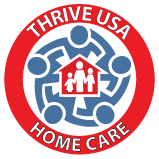June is World Elder Abuse Month
In the United States, elder abuse is a hidden and rising issue. Experts estimate that 10% of older adults are victims of elder abuse, yet only a small percentage of cases are ever reported. Elder abuse is defined by law as “an act or omission that causes serious physical or emotional injury to an elderly person, or financial exploitation of an elderly person; or the failure, inability, or resistance of an elderly person to provide for himself or herself one or more of the necessities essential for physical and emotional well-being without which the elderly person would be unable to safe.” Elder abuse includes:
- Abandonment or Neglect -Failure to provide food, housing, cleanliness, medical treatment, and other fundamental requirements of life.
- Physical abuse- the use of physical force that causes illness or injury and the holding of an older adult against their will.
- Emotional or psychological abuse- Intimidation, threats, and other behaviors that create emotional distress; isolation from others.
- Financial exploitation- includes theft, forgeries, and stealing from an elderly person’s bank account or retirement benefits, as well as fraud and the misuse of guardianship or power of attorney.
- Sexual abuse is when a person is subjected to unwanted or coerced sexual interaction.
Friendly Stranger or “Trusted Other”?
A random robbery, a fraudulent or “scam” telephone call, or a “kind stranger” who works their way into the senior’s life for nefarious reasons are all examples of elder abuse done by strangers. However, most elder abuse occurs at the hands of a “trusted other,” such as a family member, a friend, a neighbor, or a financial adviser, according to experts.
Elder abuse is more likely when an older adult is reliant on others either because of mobility issues, dementia, or other impairments. Elder abuse and mistreatment occur in all socioeconomic and health statuses. It might happen in the person’s home, a care facility, or a family member’s home.
Because social isolation is a major risk factor for elder abuse, World Elder Abuse Awareness Month 2021 will be more important than ever. Many programs that keep older persons linked to the world outside their homes have been limited as a result of stay-at-home orders. Financial abuse has increased as a result of economic instability. Scammers have taken advantage of older folks’ anxieties to offer them worthless cures and treatments, or to scare them into giving personal information that allows the scammers to access the seniors’ bank accounts.
Signs to Look for to Help Prevent Elder Abuse
How can you help protect older adults? Here are some warning signs to be aware of in your professional and personal life when coming into contact with seniors.
- Unexplained bruises, broken bones, burns, cuts, or scars
- Poor hygiene, dirty clothes, unusual weight loss, bedsores
- Withdrawal from normal activities and relationships
- Sudden change in their financial situation
- Signs of trauma or depressions
- Insults, threats, or abuse of power by a caregiver
- Lack of appropriate medical care
Seniors who are mistreated may be embarrassed or reluctant to speak up. They may not want to get a family member or relative in trouble. They could be afraid of retaliation from the abuser. They may also feel that the abuser is the only person who can help them. Report your concerns to the appropriate adult protective services agency. You can find contact information on the website of the National Center on Elder Abuse or call 911.
Keeping Senior Relatives Safe
In today’s world due to the COVID 19 pandemic, a family has to maintain close contact with their senior relatives. Visit as frequently as you can! These visits can be virtual via face time or zoom, or phone conversations. Schedule your visit and calls regularly. Recognize the warning signs described above, and empower your loved ones to speak out about issues that they are concerned about.
Unfortunately, family members are occasionally the perpetrators of elder abuse; so the more family members participating in a loved one’s care, the better. Check out a senior living facility or an adult family home if a loved one is moving there. Additionally, families should learn all they can about caregivers with whom they entrust their loved one’s care.
Professional Home Care Services
Thrive USA Professional in-home care services can help! Each client’s needs and goals are tended to by our highly-trained Personal Care Coaches. With a wide range of specialties and degrees, our PCCs are individually paired with clients to match the level of care needed and each client’s individual goals. This personalized approach to care decreases client recovery time, increases energy levels, promotes independence, and improves interpersonal relationships. It’s very important to hire through an agency that screens and trains their caregivers. This provides peace of mind for the family and ensures the well-being of their loved one. Every older adult deserves to be safe in their home and respected by their caregivers. Thrive USA PCC’s are screened, supervised, and trained to meet the physical, emotional, and safety needs of clients and families. Schedule a free consultation today.


